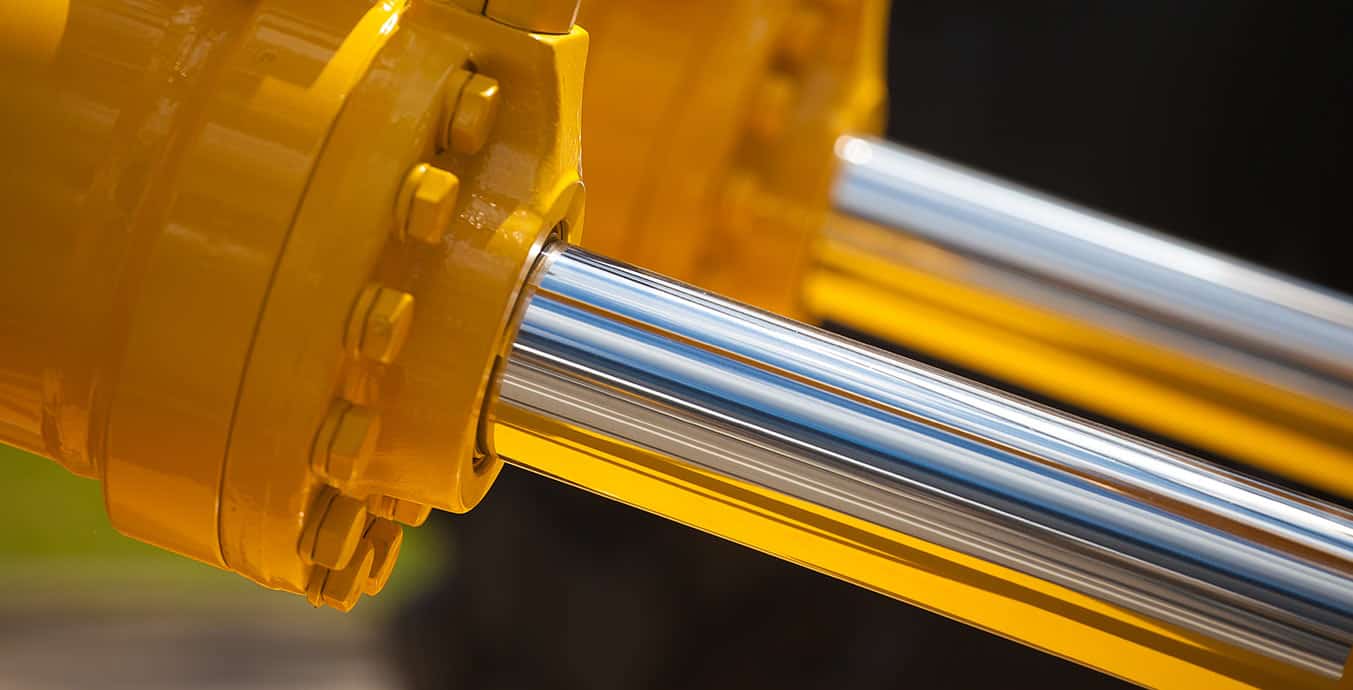
While hydraulic oil can sometimes be described as a hydraulic fluid, a hydraulic fluid may not necessarily be a hydraulic oil. This is because hydraulic oil only refers to power-transferring hydraulic lubricants that use an oil base, and some of these are simply water-based. In fact, one of the first historic instances of a hydraulic system being employed used water. Over 4,000 years ago, the ancient Egyptians made use of hydraulic technology to both irrigate the farm crops they planted and control flood levels in the Nile Valley.
Today, an extensive range of high-quality products are available from manufacturers like Q8, Fuchs and Mobil, and a professional hydraulic oil supplier will be able to guide enterprises on the most ideal solution for their requirements. Hydraulic oils are often infused with specially engineered additive packages that enhance the work they do, improving sought-after properties such as viscosity, thermal stability, and anti-wearing.
What is hydraulic oil?
Hydraulic oil is a medium for transferring power within hydraulic machinery. Typical hydraulic oils are composed of a base of high-quality mineral oil and carefully formulated additives. Hydraulic fluids are employed in many kinds of equipment from power steering systems, hydraulic brakes, elevators, transmissions, excavators, industrial machinery, rubbish collection trucks, and even the systems for aircraft flight control.
The composition of hydraulic oil
While not all, most of the hydraulic fluids used since the early 1920s have used a mineral oil-based stock to start with. This is for two reasons. Firstly, mineral oil has natural lubricating properties and secondly, it is suitable for use at extreme temperatures beyond water’s boiling point often required in industrial applications.
When manufacturers are seeking to produce biodegradable hydraulic fluids from renewable sources, natural oils such as canola, also known as rapeseed oil, are used to create a base stock for the lubricant. However, chemically crafted hydraulic oils can sometimes offer enhanced operation, particularly when they are required for specific applications where fire resistance or the ability to work efficiently under extreme conditions like high temperatures is mandatory. Examples of such chemical base-stocks include propylene glycol, organophosphate ester and glycol ethers, as well as silicone oils.
Specially engineered additive packages can include a diverse selection of chemical compounds to enhance the oil’s capabilities. These may include oils, esters and silicones, but also butanol, anti-erosion additives and corrosion inhibitors to help protect equipment.
Hydraulic oil for specialist applications
Hydraulic oils can be designed specifically for anti-wear. These are typically engineered using a base stock of petroleum and commonly incorporate a zinc-based anti-wear additive. The additive included works hard under pressure to protect components like the hydraulic pump. Designed to be used in different applications, these oils are offered in an extensive range of viscosity grades.
Anti-wear hydraulic oils are denoted by the letters “AW” before their reference number. For example, hydraulic oils marked AW 32 are designed for use in cold weather conditions like the pump of a snow plough, whereas AW 46 oils are more suitable for excavators, dump trucks and other off-road vehicles and equipment. Supporting documents for vehicles and other machinery that employs hydraulic systems will inform operators of the best type of oil to use, but those unsure can consult a hydraulic oil supplier for advice when necessary.
Hydraulic systems employed in industrial facilities often operate at thousands of pound force per square inch (PSI) and in temperatures that can reach hundreds of degrees in Celsius. To safeguard operators and those performing hydraulic systems maintenance, hydraulic fluids with fire-resistant properties are available. These specialised formulas like polyol-ester and water-glycol possess exceptional hydrolytic and thermal properties known to assist with fire resistance.
Environmentally friendly options
Machinery used in any application where consideration to the environment is required, like hydraulic pumps used in marine dredging or hydraulics in harvesters and tractors in rural areas, can benefit from these biodegradable oils. Where leakage is inevitable and spillages a potential risk when burst oil lines occur, hydraulic oils that use a vegetable oil base such as rapeseed can lessen the impact on the environment and avoid harm to soil and water systems.
Forward-thinking lubrication manufacturers such as Shell produce hydraulic fluids that are designed to be kind to the environment. Those looking for a biodegradable option can locate a dependable hydraulic oil supplier to obtain stock.
Important properties of a high-quality hydraulic oils
High-performance hydraulic oils with increased capabilities like anti-wear properties and thermal stability have been developed specifically to answer the rigorous demands of today’s modern hydraulic systems working under extreme pressure. Most hydraulic oils available are designed to include a specific collection of additives on top of a base stock oil to deliver optimum performance from the equipment they work in conjunction with.
Hydraulic oils with a high viscosity index can operate in peak condition at a wide selection of temperatures, while always maintaining the same level of efficiency and delivering protective properties. From extreme heat to severe cold, many versatile hydraulic oils are capable of ensuring equipment always works effectively.
High-quality hydraulic oils have been engineered to ensure they are suitable for a wide range of applications. Efficient and clean performance can reduce the amount of residue clogging equipment, which can save time and money for enterprises. Clean equipment is less likely to require maintenance and repair downtime, but this process can also add to the lifespan of individual components. Clean hydraulic operations that are operating more efficiently will also lead to reduced energy consumption, as equipment does not have to work as hard to perform its task.
Dependable thermal stability, as well as oxidation, means that the life of hydraulic oils can often be extended. With a high-performance product, this will be true even when it must work in the most severe operating conditions.
Anti-wearing properties will also help reduce the amount of wear suffered by individual system components, achieved by protecting the hydraulic pumps. Once more, this can assist enterprises and equipment owners to reduce costs incurred by maintenance downtime, expensive repair, and part replacements.








































